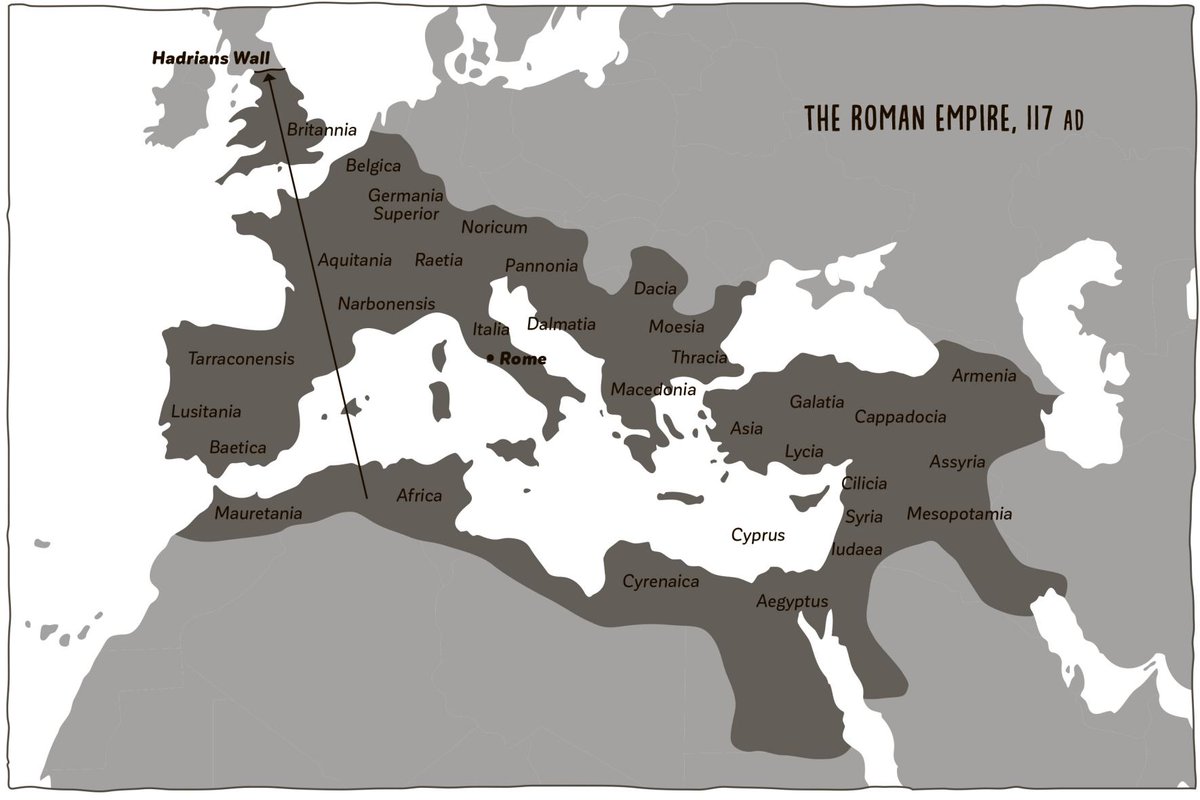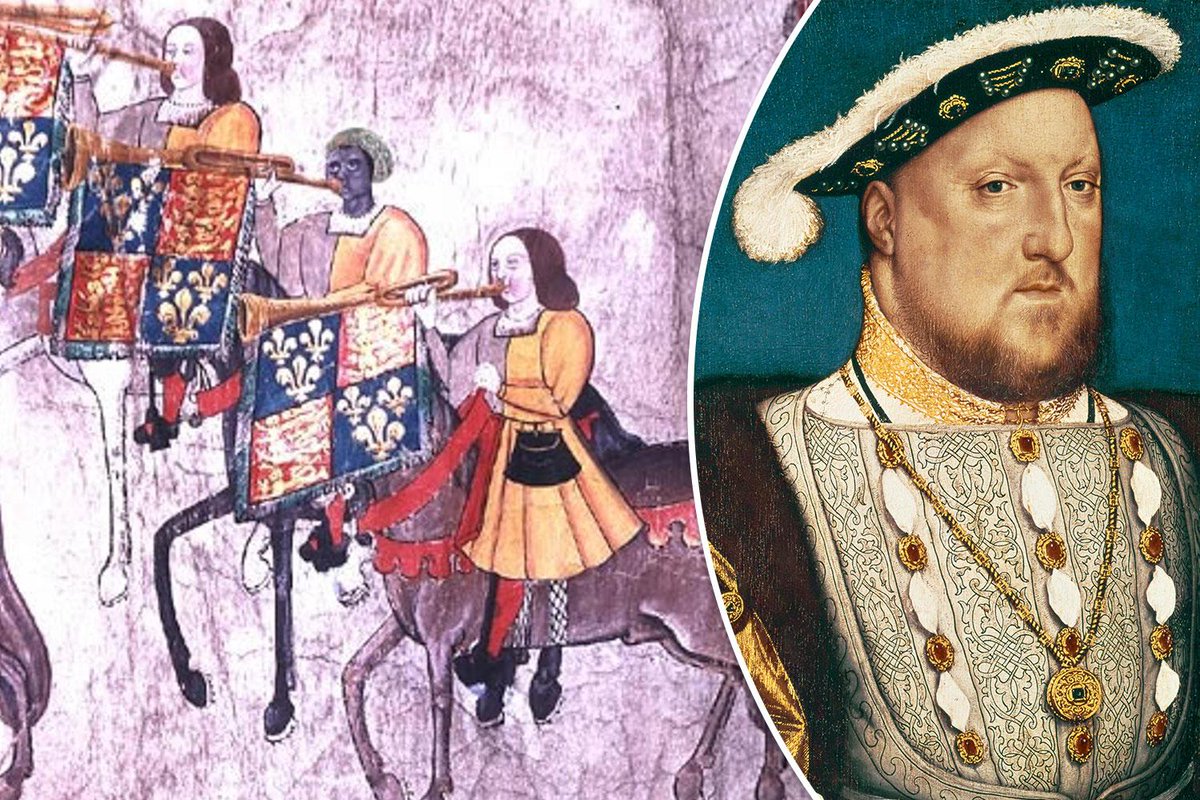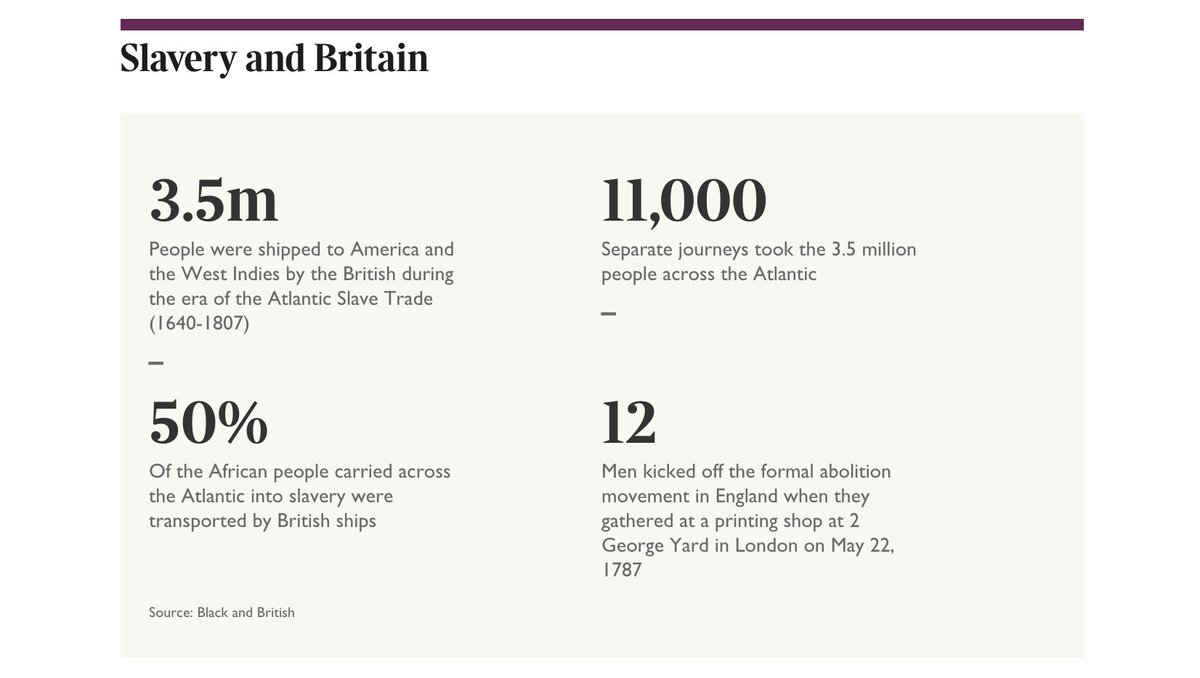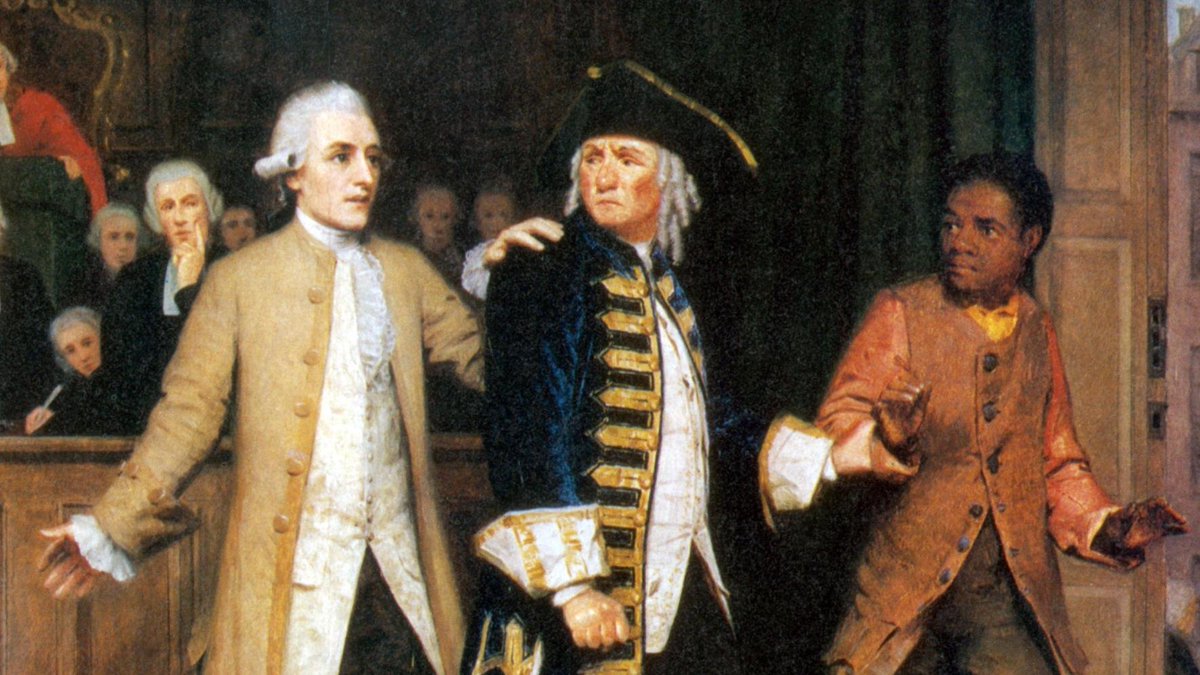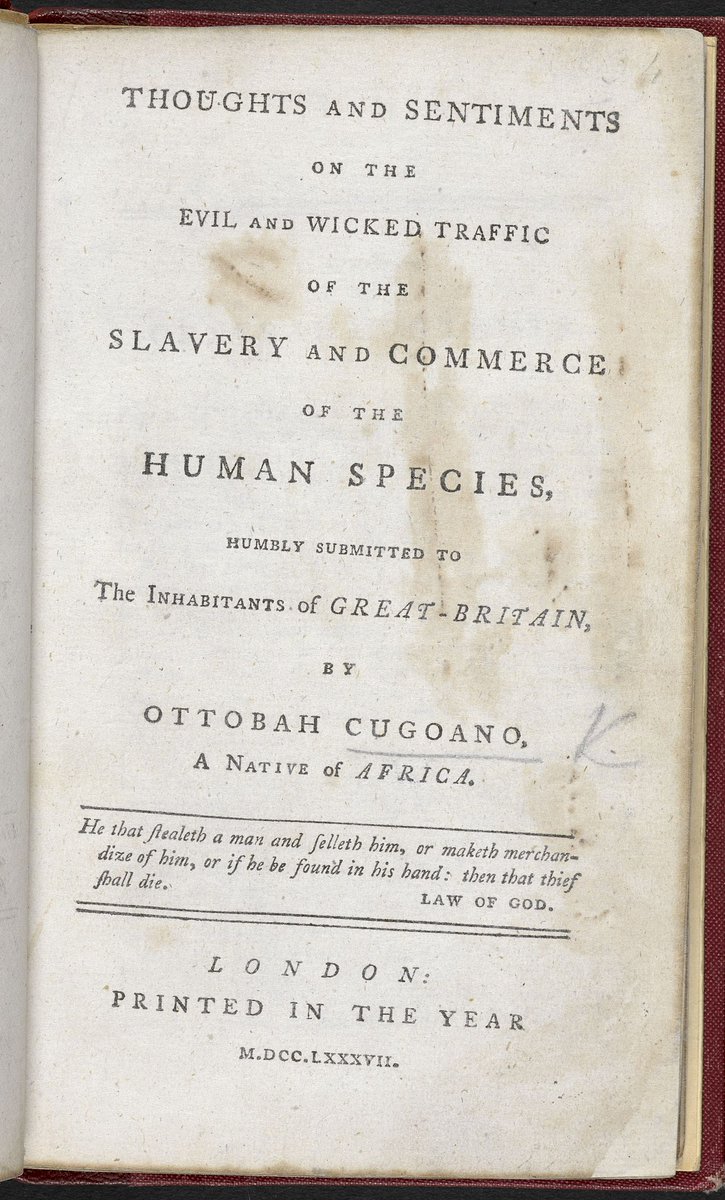Black British history is growing. We know more with each passing year.
In our new series for kids (and parents!), historian and presenter @DavidOlusoga teaches the history that he was never taught #Echobox=1601894177">https://www.thetimes.co.uk/article/david-olusoga-black-and-british-book-extract-xk5tr0p6x?utm_medium=Social&utm_source=Twitter #Echobox=1601894177">https://www.thetimes.co.uk/article/d...
In our new series for kids (and parents!), historian and presenter @DavidOlusoga teaches the history that he was never taught #Echobox=1601894177">https://www.thetimes.co.uk/article/david-olusoga-black-and-british-book-extract-xk5tr0p6x?utm_medium=Social&utm_source=Twitter #Echobox=1601894177">https://www.thetimes.co.uk/article/d...
Romans 27BC-476AD
Africans first came to Britain with the Roman Empire.
https://www.thetimes.co.uk/article/david-olusoga-black-and-british-book-extract-xk5tr0p6x">https://www.thetimes.co.uk/article/d...
Africans first came to Britain with the Roman Empire.
https://www.thetimes.co.uk/article/david-olusoga-black-and-british-book-extract-xk5tr0p6x">https://www.thetimes.co.uk/article/d...
In 1934, Latin words were found carved into a stone in a village in Cumbria.
They said that a group of soldiers called the “Aurelian Moors” had been stationed at the nearby fortress of Aballava between the years 253 and 258AD. The word “moors” means “people from North Africa”.
They said that a group of soldiers called the “Aurelian Moors” had been stationed at the nearby fortress of Aballava between the years 253 and 258AD. The word “moors” means “people from North Africa”.
Tudors 1485-1603
You hardly ever see Black people in films and pictures of Tudor England — but they were there https://www.thetimes.co.uk/article/david-olusoga-black-and-british-book-extract-xk5tr0p6x">https://www.thetimes.co.uk/article/d...
You hardly ever see Black people in films and pictures of Tudor England — but they were there https://www.thetimes.co.uk/article/david-olusoga-black-and-british-book-extract-xk5tr0p6x">https://www.thetimes.co.uk/article/d...
We know from court accounts that there was a “blacke trumpeter” in the court of Henry VIII and his father Henry VII, and that his name was John Blanke.
https://www.thetimes.co.uk/article/david-olusoga-black-and-british-book-extract-xk5tr0p6x">https://www.thetimes.co.uk/article/d...
https://www.thetimes.co.uk/article/david-olusoga-black-and-british-book-extract-xk5tr0p6x">https://www.thetimes.co.uk/article/d...
John played for the Tudor royal family for years, and was right at the centre of historic royal events. He played at King Henry VII’s funeral, and at his son Henry VIII’s coronation.
He is the earliest Black person in Britain whose name and face we know.
He is the earliest Black person in Britain whose name and face we know.
Read more about Black history and the Romans, Tudors and the Age of Discovery in lesson one here: https://www.thetimes.co.uk/article/david-olusoga-black-and-british-book-extract-xk5tr0p6x">https://www.thetimes.co.uk/article/d...
In another lesson in our series, @DavidOlusoga explains the abolitionist movement in Britain https://www.thetimes.co.uk/edition/times2/david-olusoga-on-how-the-slave-trade-ended-in-britain-2f7fggk09">https://www.thetimes.co.uk/edition/t...
Although there were both enslaved and free Black people in Georgian Britain, there was one question that no one had the answer to — was slavery legal in Britain? https://www.thetimes.co.uk/edition/times2/david-olusoga-on-how-the-slave-trade-ended-in-britain-2f7fggk09">https://www.thetimes.co.uk/edition/t...
Historians think that about 3.5 million people were shipped to America and the West Indies by the British during the era of the Atlantic Slave Trade (1640-1807)
It took around 11,000 separate journeys to carry that many people across the Atlantic
https://www.thetimes.co.uk/edition/times2/david-olusoga-on-how-the-slave-trade-ended-in-britain-2f7fggk09">https://www.thetimes.co.uk/edition/t...
It took around 11,000 separate journeys to carry that many people across the Atlantic
https://www.thetimes.co.uk/edition/times2/david-olusoga-on-how-the-slave-trade-ended-in-britain-2f7fggk09">https://www.thetimes.co.uk/edition/t...
During the 18th century, half of all the Africans carried across the Atlantic into slavery were transported by British ships
In the 1770s, however, more and more people began to see slavery as a national shame. They wanted to see the slave trade abolished
https://www.thetimes.co.uk/edition/times2/david-olusoga-on-how-the-slave-trade-ended-in-britain-2f7fggk09">https://www.thetimes.co.uk/edition/t...
In the 1770s, however, more and more people began to see slavery as a national shame. They wanted to see the slave trade abolished
https://www.thetimes.co.uk/edition/times2/david-olusoga-on-how-the-slave-trade-ended-in-britain-2f7fggk09">https://www.thetimes.co.uk/edition/t...
Much of the work organising the abolitionist movement was done by women, who did not have the right to vote in elections
They promoted one of the tactics used by the abolitionist movement: boycotting products produced by enslaved people https://www.thetimes.co.uk/edition/times2/david-olusoga-on-how-the-slave-trade-ended-in-britain-2f7fggk09">https://www.thetimes.co.uk/edition/t...
They promoted one of the tactics used by the abolitionist movement: boycotting products produced by enslaved people https://www.thetimes.co.uk/edition/times2/david-olusoga-on-how-the-slave-trade-ended-in-britain-2f7fggk09">https://www.thetimes.co.uk/edition/t...
Two of the most important abolitionist books were written by Black abolitionists, Olaudah Equiano and Ottobah Cugoano. Cugoano’s book Thoughts and Sentiments on the Evil of Slavery and Commerce of the Human Species told the story of his life
https://www.thetimes.co.uk/edition/times2/david-olusoga-on-how-the-slave-trade-ended-in-britain-2f7fggk09">https://www.thetimes.co.uk/edition/t...
https://www.thetimes.co.uk/edition/times2/david-olusoga-on-how-the-slave-trade-ended-in-britain-2f7fggk09">https://www.thetimes.co.uk/edition/t...

 Read on Twitter
Read on Twitter